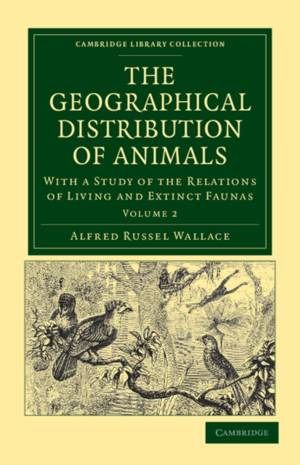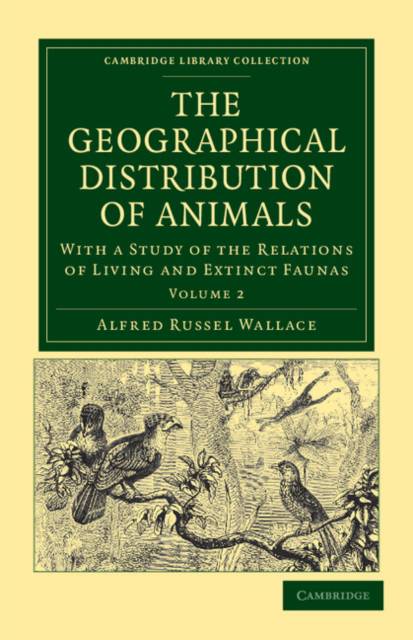
- Afhalen na 1 uur in een winkel met voorraad
- Gratis thuislevering in België vanaf € 30
- Ruim aanbod met 7 miljoen producten
- Afhalen na 1 uur in een winkel met voorraad
- Gratis thuislevering in België vanaf € 30
- Ruim aanbod met 7 miljoen producten
Zoeken
The Geographical Distribution of Animals - Volume 2
With a Study of the Relations of Living and Extinct Faunas as Elucidating the Past Changes of the Earth's Surface
Alfred Russell Wallace
€ 120,95
+ 241 punten
Omschrijving
Alfred Russel Wallace (1823-1913) was a British biologist and explorer whose theories of evolution, arrived at independently, caused Darwin to allow their famous joint paper to go forward to the Linnean Society in 1858. Considered the nineteenth century's leading expert on the geographical distribution of animals, Wallace carried out extensive fieldwork in areas as diverse as North and South America, Africa, China, India and Australia to document the habitats, breeding, migration and feeding behaviour of thousands of species around the world, and the influence of environmental conditions on their survival. First published in 1876, this two-volume set presents Wallace's findings, and represents a landmark in the study of zoology, evolutionary biology and palaeontology which remains relevant to scholars in these fields today. Volume 2 explores the distribution of primates, the habitats and characteristics of mammals, birds, reptiles, fish and insects, and patterns of migration.
Specificaties
Betrokkenen
- Auteur(s):
- Uitgeverij:
Inhoud
- Aantal bladzijden:
- 640
- Taal:
- Engels
- Reeks:
Eigenschappen
- Productcode (EAN):
- 9781108037853
- Verschijningsdatum:
- 3/11/2011
- Uitvoering:
- Paperback
- Formaat:
- Trade paperback (VS)
- Afmetingen:
- 140 mm x 216 mm
- Gewicht:
- 802 g

Alleen bij Standaard Boekhandel
+ 241 punten op je klantenkaart van Standaard Boekhandel
Beoordelingen
We publiceren alleen reviews die voldoen aan de voorwaarden voor reviews. Bekijk onze voorwaarden voor reviews.











